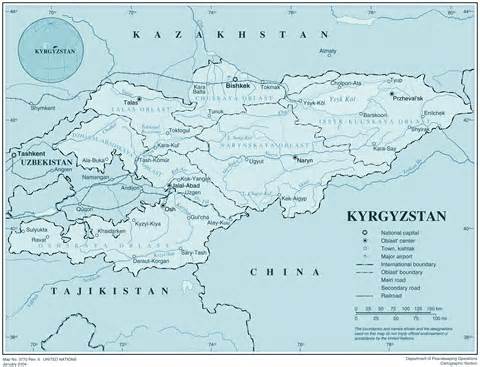
I’ve started to prepare for my trip to Bishkek by posting reading materials on a Web resource page for the librarians I will meet on my visit to the American University of Central Asia Library. I did something similar when I went on a Fulbright to Rabat, Morocco in 2003. What a difference in the state of technology then and now. In 2003 we had our own catalog; today we tag records with our holding symbol in the universal database, Worldcat. In 2003 all my readings were printed out as handouts; today because Web 2.0 is dynamic and interactive my handouts are downloadable. Most importantly, the standardization of protocols for posting and retrieving information has changed how information moves and can be reconfigured. Snap your fingers. It’s that fast.
Materials at the site include resources on information literacy, services for faculty, collection development and strategic planning reports and a section on academic library policies. I am curious to see the response of the librarians to some of the free tools I’ve listed. Can they recreate with open source tools vendor products that are too expensive for them to purchase? It would take a lot of ingenuity and skill. Any thoughts or additions? Here are some of the tools:
- Calibre: e-book management a free and open source e-book library management application
- Collective Access Cataloging Software
- Dirt Directory The DiRT Directory aggregates information about digital research tools for
- Doodle Free scheduling tool
- Find your hat for libraries Free technology tools for libraries
- From the Front Page free software that allows volunteers to transcribe handwritten documents online
- Google Open Gallery free tools for museums, galleries and archives
- The Researching Librarianlinks to selected web resources useful for research: freely searchable citation and full-text databases, funding information, relevant journals, statistics and statistical methods, useful research tools, current awareness sources, and conference papers and proceedings
- Screencast Free screen recording
- SubjectPlus free and open source tool to help you manage several interrelated parts of your library website
- WebEXFree Online meeting software with two other people
-
Join Me Free online meeting software

In April, the weather should be in the 40s and 50s–the beginning of Spring. I will be staying in university housing and should be able to walk to the library. I am hoping my Russian is still strong enough to be able to communicate–if not professionally, at least when I go to the market. By coincidence, the architect who designed this library, Henry Myerberg, wrote the introduction to the book I just finished editing, Creating the High-Functioning Library Space His visit should overlap with mine, so we can talk about what he intended for the space.
